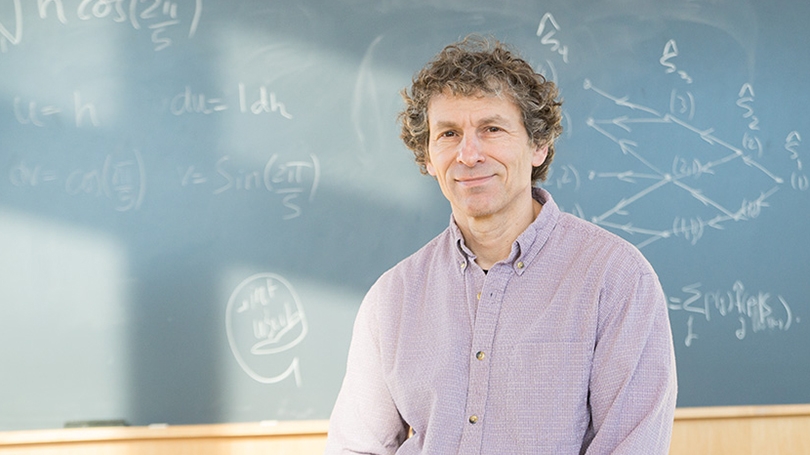
- About
- Departments & Programs
- Faculty Resources
- Governance
- Diversity
- News
Back to Top Nav
Back to Top Nav
Back to Top Nav
Back to Top Nav
“Dan is an inspiring innovator,” says Elizabeth Smith, dean of the Faculty of Arts and Sciences.
Dan Rockmore, the William H. Neukom 1964 Distinguished Professor of Computational Science and director of the Neukom Institute for Computational Science, has been named associate dean of the sciences in the Faculty of Arts and Sciences. He succeeds Elizabeth Smith, who on June 21 was appointed dean of the Faculty of Arts and Sciences.
“Dan is an inspiring innovator. He excels in his own field of computational science and he understands how math and science fit into the broader liberal arts curriculum,” says Smith. “In the classroom, as a researcher, and as director of the Neukom Institute, he has been a forceful advocate for scientific study, and I look forward to working closely with him to sustain and strengthen the culture of inquiry at Dartmouth.”
“I’m gratified that people think I will help the sciences reach their potential within the College,” says Rockmore, who was appointed for a four-year term that began July 1. “I don’t see the science division as walled off from other disciplines, and I will look for ways to integrate the sciences on a larger scale than I was able to do as a professor and department chair.”
Rockmore is taking on the new role at a time when, in many places, science is under attack, he says. “We are lucky at Dartmouth that the sciences have such strong support, in terms of student, faculty, and alumni interest and involvement. I look forward to growing that support, but also to using it as a springboard to find ways for our scientists to extend that base: in the media, and in our local schools and beyond.”
With a bachelor’s degree from Princeton University and a master’s and PhD from Harvard University, Rockmore arrived at Dartmouth in 1991, after two years in the mathematics department at Columbia University. His research at Dartmouth, consistently supported by the National Science Foundation (NSF), focuses on complex systems, network analysis, machine learning, and even cultural evolution. With Professor Hany Farid and others, he developed a digital technique for art authentication. With Michael Livermore, an associate professor of law at the University of Virginia, he has applied data text mining tools to court opinions, comparing U.S. Supreme Court decisions to those issued by the U.S. Courts of Appeals.
Rockmore’s book about prime numbers, Stalking the Riemann Hypothesis (Random House, 2005), was longlisted for the Aventis Science Writing prize. The Math Life, a 2002 documentary film co-produced by Rockmore, was shown on many public television stations throughout the United States and features interviews with leading mathematicians about what motivates their work. It is one of four science documentaries that he has co-produced.
With a current NSF grant, Rockmore is forging a partnership with rural libraries nationwide to help librarians create STEM (science, technology, engineering, and mathematics) learning centers. He is the editor of a new book, What Are the Arts and Sciences: A Guide for the Curious (Dartmouth College Press), which includes chapters from 27 Dartmouth faculty members explaining their disciplines. He has also curated an art portfolio featuring prints of mathematical expressions, co-directed an annual competition, the Turing Tests in the Creative Arts, and is a frequent contributor to The Huffington Post.
“It’s important for scientists and mathematicians to talk to each other on college campuses,” says Rockmore, “but we should not let that conversation become too hermetic. Our ideas need to be out in the world. And I hope that, as faculty, we send a message to students about the ethical and societal implications of what we do as scientists, so that they think about having an impact when they pursue their careers beyond college.”